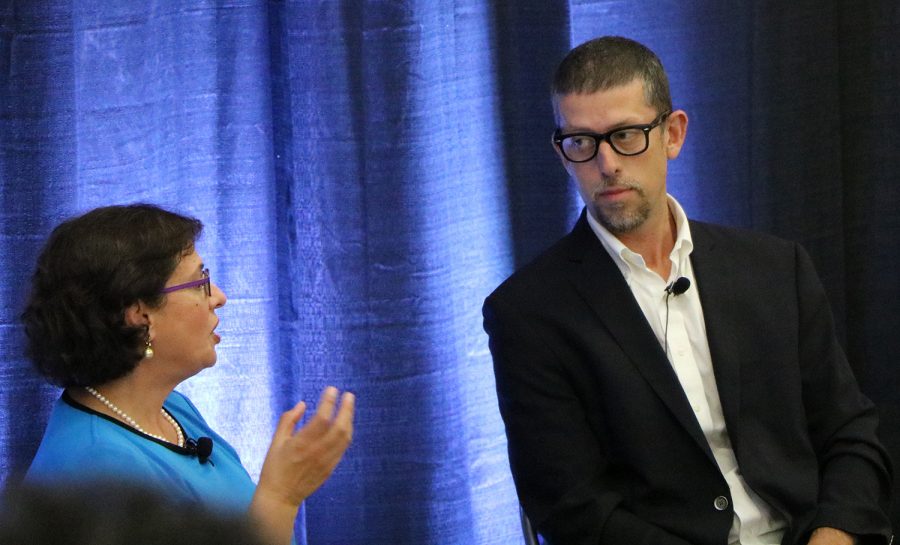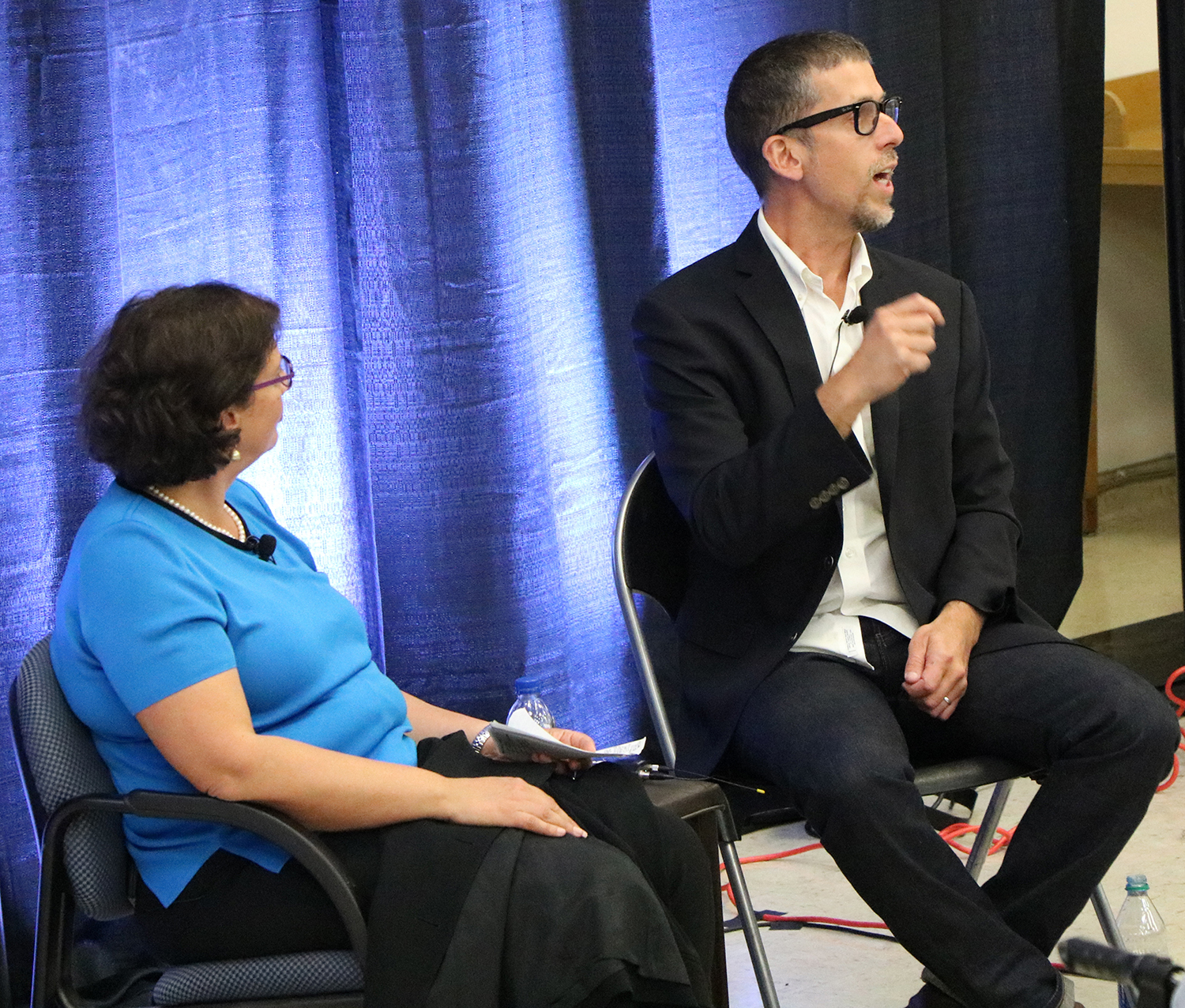Author Sonia Nazario delivers speech at BC
October 15, 2018
Pulitzer-winning journalist Sonia Nazario visited Bakersfield College to deliver a speech on immigration and journalism.
Joined by media leader Joaquin Alvarado, Nazario lead a discussion with BC students and faculty in an examination of today’s media
Nazario began by recounting her family history of immigration. Her father fled Syria due to persecution of Christians, and her mother fled Poland to escape the oncoming persecution of Jewish populations.
Her family migrated to Argentina, where Nazario was born.
When she was 14-years-old, she learned of the death of a dissident journalist in Argentina. Following the military takeover in Argentina, she and her family left for Kansas.

Sonia Nazario talks about her family’s journey from Argentina to Kansas. Her father is from Syria and her mother is a woman of Jewish decent.
As an adult, Nazario dedicated her life to journalism and telling stories.
“I view my role as to afflict the comfortable and comfort the afflicted,” Nazario said.
Nazario believes journalism is best when it not only informs the audience but explains the story.
Her ground-breaking work “Enrique’s Journey,” originally published as a series of articles in the LA Times, follows the journey of a Honduran child travelling on top of freight trains to arrive in the United States.
Nazario said she practices “immersion reporting,” the process of travelling with and observing subjects for long periods of time.
As part of her reporting, Nazario accompanied migrant children on their journey to America. Nazario participated in the journey herself, riding a top freight trains with the children.
Considering her great success in reporting on migrant journeys, Nazario was surprised to see immigration become a contentious topic.
“Journalism is under seige financially and from the President,” Nazario said.
“There isn’t enough journalism on migrant and immigrant contributions [to society], especially farm workers and field workers,” Alvarado added.
Nazario believes that certain reforms can change journalism.
“Journalists have to be much beter at explaining what we do,’ Nazario said. “We need to be more transparent about our reporting and our sources.”
Citing her own experiences writing “Enrique’s Journey,” Nazario explained the strenous attention she displayed in including her sources.
Nazario added that community support benefits journalism far more than the support of corporations.
“We need to engage the community,” Nazario said.
She also believes that media literacy needs to be taught in high schools in order to increase readership.
Nazario then expanded on how journalists can better their field.

Joaquin Alvarado talks about the day-to-day issues that plague America such as police brutality, and the University of Phoenix taking more G.I. Bill money than the entire University of California system.
“Journalists think too small,” Nazario said.
The speech shifted to a discussion on immigration in the U.S. today.
Nazario and Alvarado described the current pattern of immigration, in which immigrants from Mexico are largely leaving the country while migrants from Central America are arriving in greater numbers. Nazario expanded on asylum laws and the process of migrating to the U.S. to flee persecution.
“The majority of these people are fleeing violence,” Nazario said.
“The majority of immigrants are coming from Honduras, Guatemala, and other Central American countries.”
The conversation concluded with a Q&A session.
Audience members raised their hands to ask further questions of Nazario and Alvarado on journalism and current patterns of immigration. Following the event, attendees lined up to greet Nazario, take pictures, and have their copies of “Enrique’s Journey” signed.




